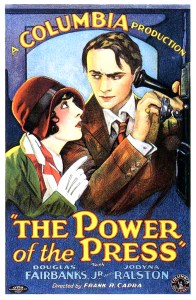Jeff Bezos's Stand for Media Neutrality Sparks Boycott of the Washington Post
The Media Musk? Why the Cancel Campaign Targeting Jeff Bezos Could Backfire 🔗

The ongoing boycott of the Washington Post, led by Democratic figures and journalists against owner Jeff Bezos, stems from his decision to maintain political neutrality. This has sparked significant backlash, with some calling for boycotts of the Post and even Amazon. Despite the pressure, Bezos remains firm in his stance, highlighting the detrimental effects of media bias and political endorsements on journalism's credibility. His recent op-ed emphasizes the need for newspapers to return to neutrality to combat declining readership and trust. By resisting the left's demands, Bezos could potentially create an alliance with other outspoken figures like Elon Musk, fostering a movement to restore free speech and objectivity in journalism.
- The boycott against the Washington Post is driven by fears of political neutrality from Jeff Bezos.
- Bezos's decision to stop political endorsements is seen as a challenge to the current trend of advocacy journalism.
- The left's reaction may inadvertently strengthen the push for media neutrality, potentially uniting figures like Bezos and Musk to advocate for free speech.
What is the main reason for the boycott of the Washington Post?
The boycott is primarily due to Jeff Bezos's desire to maintain political neutrality and not endorse any presidential candidate.
How has Jeff Bezos responded to the boycott?
Bezos has stood firm in his decision, emphasizing the importance of neutrality in journalism and recognizing the negative impact of political endorsements on public trust.
What could be the potential outcome of Bezos's stance?
If Bezos successfully restores neutrality in journalism, it may lead to a significant shift in media practices and possibly create a coalition with other influential figures like Elon Musk to promote free speech and objectivity.